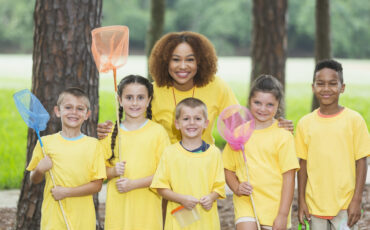Naming Your Baby
Table of Contents
What does naming a baby have to do with laundry detergent? More than you might think. Just as a good commercial brand name creates positive interest and helps that brand succeed in the marketplace, the right first name can smooth your child’s path and predispose people to think well of him or her. The brand-naming consultants at Catchword present the 10 naming rules that are just as applicable for babies as they are for products:
 Know your product.
Know your product.
You wouldn’t name a new skincare lotion before getting to know everything you could about it. Why name your baby before getting to know him or her? Having a handful of names selected ahead of time is always a good idea. But wait until after the birth to make the final decision. Every little one has her or his own personality, as any parent can attest. Even just a few hours getting acquainted with your new baby can help you decide which name’s the best fit.
Differentiate from the competition.
Children vie for attention from day one. A distinctive name can give them a head start. That’s not to say a name should be different just for the sake of being different. (Like Frank Zappa’s offspring, Moon Unit, Dweezil and Diva Thin Muffin. That’s pretty serious karma.) But it’s worth researching what the most popular names of the day are and going against the grain. Do you really want your kid to be called Emily M at school so she’s not mistaken for Emilys A through L?
Go for brand longevity.
Today’s phenom could be tomorrow’s punch line. Take the longview, and beware of names whose only virtue is a link to a celebrity or cultural trend. For instance, Chanel, Armani, Porsche and Camry – all popular baby names in early
2000 – may lose their cachet over the next few decades. Just witness Toyota’s recent woes.
Consider your target audience.
A name like Ocean (Forest Whitaker’s child) may play well in a Beverly Hills school full of celebrities’ kids – and be the kiss of death in Akron, Ohio. And there’s the workplace milieu to consider too. If you want your child to be able to move freely in a variety of circles, Rocket (the name of Robert Rodriguez’s son) is probably over the top.
Limit the number of decision-makers.
Ask 10 people what they think of a name ahead of time and you’re likely to get 20 opinions. Relatives, friends, colleagues – everyone will have their own idiosyncratic take if you invite them into your process. So don’t. You’ll probably have a tough enough time just coming to agreement with your “co-producer.” And just as with commercial products, a name that may sound preposterous to “focus groups” in the abstract often will come to sound perfectly natural when paired with the item in question in real life.
Keep the master brand in mind.
In marketing parlance, your surname is the master brand; your little one’s name, the sub-brand. You want the two to pair well together. If your last name is long or hard to pronounce, a simple, short first name is a good idea. If your last name is short and prosaic, a longer, more evocative first name could provide balance. Also, make sure the two names aren’t tongue twisters when pronounced sequentially. (For instance, Seth Shostak, the radio host’s name: not good.) And avoid cutesy pairings, like Candy Barr, Penny Nicole Dimes, and Tu Morrow (what Rob Morrow from TV’s “Numb3rs” named his poor daughter). They’re pure bully fodder.
Use sounds to create a brand personality.
Sound symbolism can convey a range of desired qualities. For instance, names with “hard” consonants like Jack and Kurt come across as more testosterone-y than Ralph or Jeffrey. On the other hand, names like Ava, Isabella, Mia – among the most popular girls’ names of 2009 – have a graceful, light feeling, thanks to open vowels and soft consonants (the cushiony “v” and lilting “l”).
Make it easy to spell.
Grace. Brandon. Jacob. If you look at the most popular boys’ and girls’ names of the last decade, most of them are intuitive to say and spell. There’s a reason for that. You don’t want your child to be forever spelling her or his name for people. Think Madison vs. Madyson. Katelyn vs. Kaitlyne. Erica vs. Erykah.
Exercise care when recycling old brands.
Well-worn names that have been around for decades – or in some cases, even a few years – can have some pretty musty baggage. If you want to use the name of a relative or ancestor and it’s an old-fashioned one, consider freshening it or giving it a new twist. Edie instead of Edwina. Gene instead of Eugene. Skyler instead of Schuyler. You’ll still be paying homage to your ancestry, but your child won’t be paying penance.
Avert public-relations disasters.
Kids can be cruel; don’t saddle yours with a name that lends itself to embarrassing nicknames or jokes. Consider the initials of first and last names together; possible homonyms (a colleague was almost named Dustin Uriah); closeness in spelling to other, less savory words; historical and cultural associations (Adolf or Hannibal: not), etc. And it doesn’t hurt – especially if you move in international circles – to make sure that the name doesn’t mean something awful in common foreign languages. Pity the poor kid named Desdemona, for instance, which means “ill-fated one” in Greek. Talk about inauspicious beginnings.







